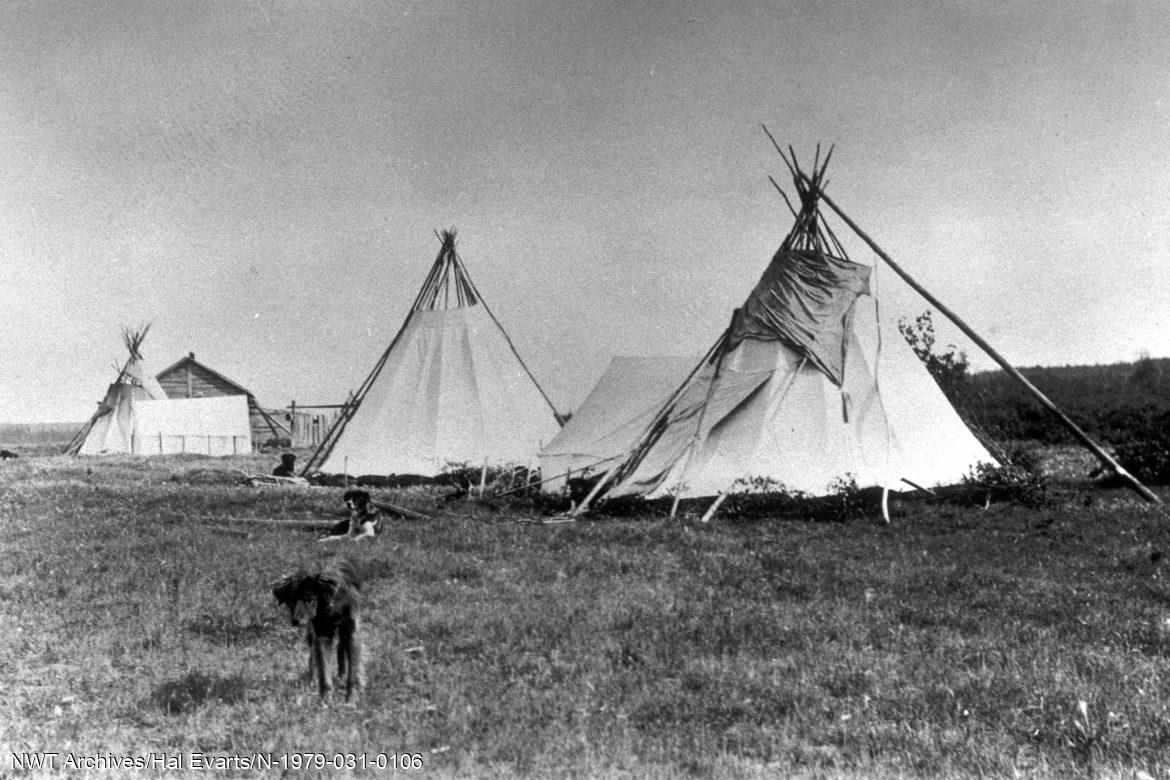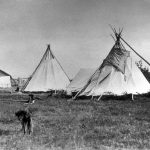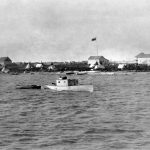1937
Fort Resolution Refuses Treaty
Every year in July, a representative from the Canadian government would travel through Treaty 8 and Treaty 11 territory to provide $5 payouts for each person and $15 for Chiefs, as well as rope, fish nets, food supplies, clothing for leaders, medical supplies and bullets as promised in the treaties. Local people used the opportunity to share their grievances with the government agent; in 1937, there were many issues to grieve. A hunting regulation banning snares, the continued practice of trapping by airplane, and the over-trapping of traditional lands were all matters of concern. Fundamental to the growing list of complaints was the imposition of game laws contrary to the Treaty agreements, which recognized the hunting and trapping rights of the people. There was also significant anger over the late arrival of promised food rations associated with the Treaties, much of which arrived after the Treaty gatherings when people had already returned to the bush. If a promise was to be a promise, the Dene expected the Canadian government to fulfill their end of the bargain.
On Treaty Day in July 1937, the Dene leaders at Fort Resolution would not accept payment from the Indian Agent as a protest against these many issues. Refusing further negotiating with the Agent, Chiefs Samuel Simon, Alexis Beaulieu, Pascal Jean, Pierre Smith, and Susie Abel sent a telegram to Ottawa demanding a meeting with the Governor General. The anger spread through the region until the people of Fort Rae and Yellowknife River took their grievances to the Indian Agent that summer. The Edmonton Bulletin acknowledged, “there isn’t much in our treatment of the Indians that savours of justice or guarantees welfare and prosperity to the people we dispossessed.”
The period after signing Treaty 11 in 1921 was a desperate time for the Dene people. The refusal to accept treaty payments in 1937 was an act of resistance and raised awareness of the living conditions imposed by the Canadian government on the Dene. Fort Resolution Chiefs refused to continue engaging with the local Indian Agent, ultimately leading to his replacement. The removal of the Indian Agent allowed the Treaty payment process to move forward but with the demand that Ottawa consider their complaints.
Still, the deeper issues of game restrictions, the Wood Buffalo National Park exclusion zones; mining land use and ownership by non-Indigenous people; and the lack of fur-bearing animals contributed to a continuing unease. The Chiefs had accepted Treaty to protect their freedom to hunt, trap, and fish. Thirty-eight years into the relationship, it was clear the Canadian government would need reminding to uphold its part of the deal.


